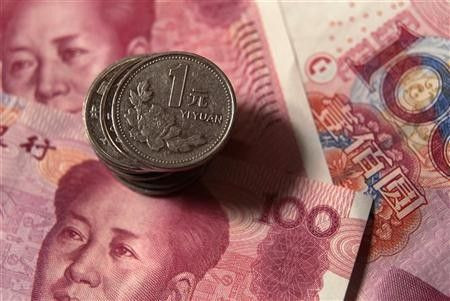China Rising Inflation: Will it Pull Down the Stock Market Improvement?

China's stock market improvement could be jeopardized by a higher than expected inflation reading for January.
China's annual inflation rate hit 4.5 percent in January, which is the highest level in three months, according to the official data released Thursday. The inflation rate in December was 4.1 percent.
The rise in food prices alone accounted for 3.29 percentage points of the headline index's rise, the National Bureau of Statistics said. Food prices jumped 10.5 percent, accelerating sharply from December's 9.1 percent rise. The food price rise was driven by a 25 percent gain in the cost of the pork, which is the staple meat in China. In December, pork prices rose 21.3 percent.
The reason for the increase in food price could have been the New Year holiday between Jan. 22 and Jan. 28 this year that has boosted prices and retail sales. Also it acted to decrease trade and industrial production as factories closed down for the celebration. The producer price index, which measures the cost of goods at the farm and factory gate, rose 0.7 percent in January compared with 1.7 percent in December.
Falling property prices that are feeding into slowing investment will in turn affect headline inflation readings. The continuing crisis in Europe and weakness in the U.S. are hurting demands for Chinese exports, which form the key driver of the country's economy. Earlier, the International Monetary Fund had warned that an escalation of Europe's debt crisis could reduce China's economic growth for this year by half.
However, the central bank is not yet expected to announce another reserve requirement cut until after the release of February inflation data early next month. A cut could prompt Chinese to divert their bank savings into more speculative investments, such as the stock market.
China will announce its 2012 inflation target at the start of the meetings of the National People's Congress in early March. Inflation may no longer be the main concern of policymakers and government may have more space to loosen monetary policies and make supporting economic growth a priority. Instead of fighting inflation, the most urgent priority for China appears to be the pro-growth policy stance against the current uncertain global situation.
© Copyright IBTimes 2024. All rights reserved.




















